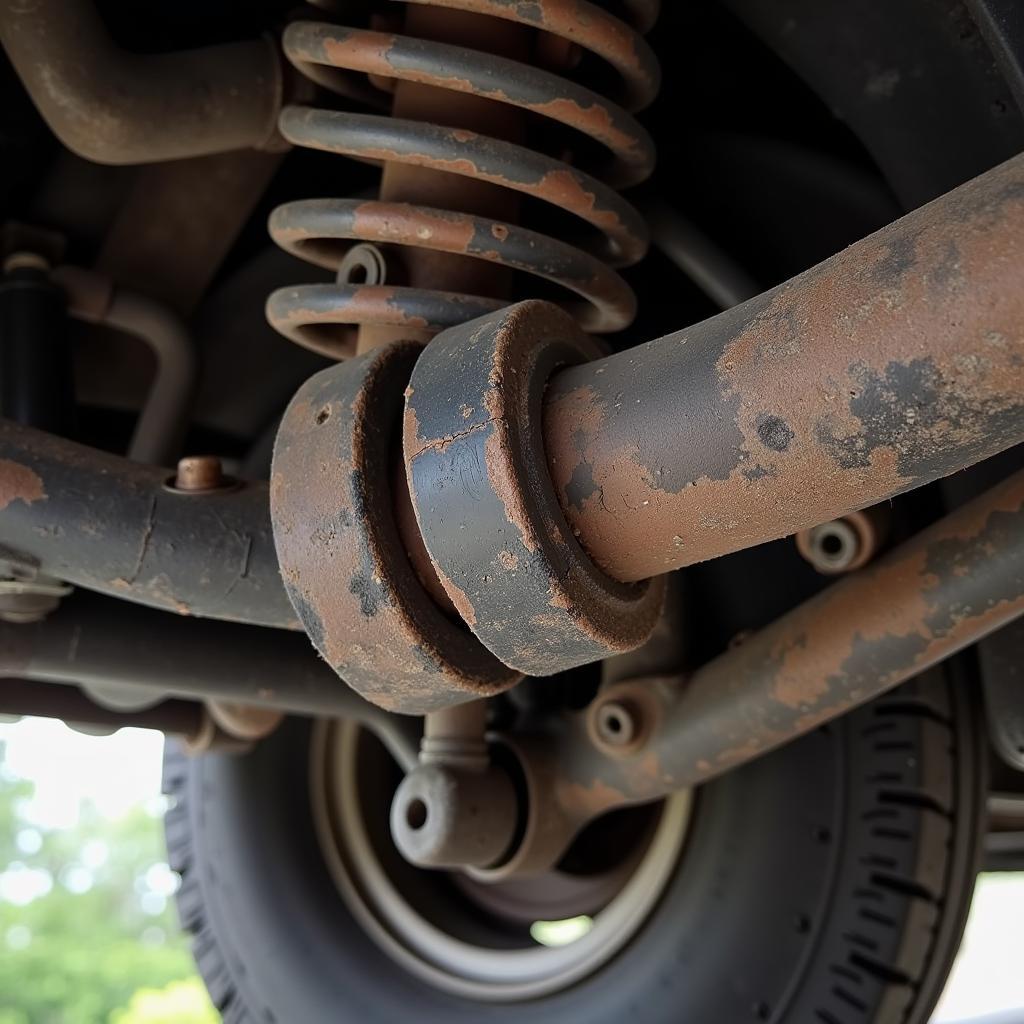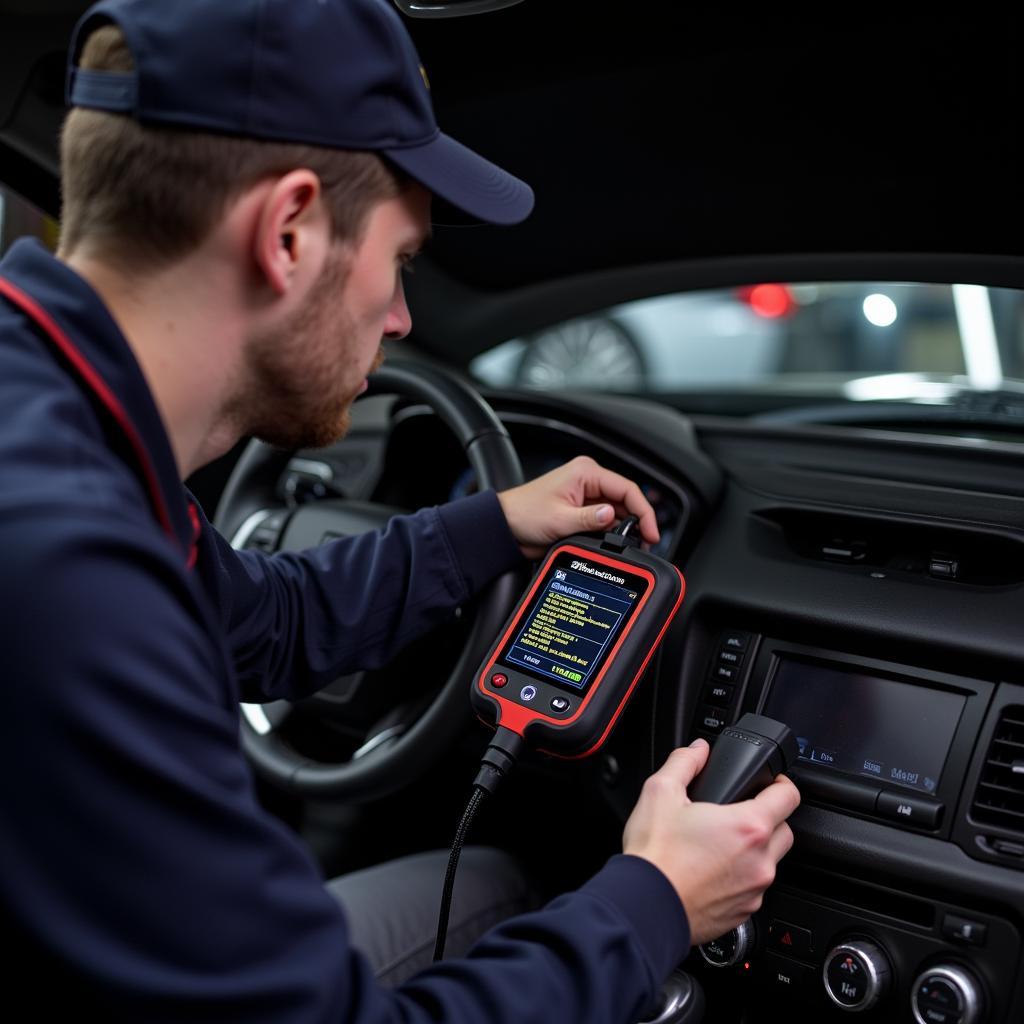Are You Allowed To Fix Your Own Car? It’s a question many car owners ponder, whether driven by a desire to save money, a love of tinkering, or simply the need to address a minor issue. The answer, thankfully, is generally yes. However, there are some important caveats and considerations to keep in mind before you roll up your sleeves and dive under the hood.
Working on your own vehicle can be a rewarding experience, allowing you to become more familiar with its inner workings and potentially save on labor costs. But understanding the legal and practical implications is crucial. Let’s explore the ins and outs of DIY car repair.
Legal Restrictions on DIY Car Repair
While you are generally permitted to work on your own car, there are some specific areas where regulations may apply. These typically revolve around environmental concerns and public safety. For example, disposing of used motor oil or other hazardous fluids improperly can result in fines. It’s essential to check with your local municipality or environmental agency for specific guidelines on proper disposal methods.
Emissions Regulations and Inspections
Another area where regulations come into play is emissions. Modifying your car’s emissions system in a way that doesn’t comply with local regulations is illegal. This includes removing or tampering with catalytic converters or other emissions control devices. Regular emissions inspections are mandatory in many areas, and failing to meet the required standards can prevent you from legally driving your vehicle.
Practical Considerations for DIY Car Repairs
Beyond the legal aspects, there are practical considerations to factor in before attempting DIY car repairs. Your safety and the proper functioning of your vehicle are paramount.
Skill Level and Tools
Do you have the necessary skills and tools? Modern cars are complex machines, and some repairs require specialized tools and knowledge. Attempting a repair beyond your capabilities could result in further damage or even personal injury. Be honest with yourself about your skill level and seek professional help when needed. Even seemingly simple tasks like changing brake pads can be dangerous if not done correctly.
Time Commitment
Time is another factor to consider. What seems like a quick fix can often turn into a time-consuming ordeal, especially if you encounter unexpected problems. If you’re short on time or rely on your car for daily transportation, it might be better to leave the repairs to the professionals. sbi car loan fixed interest rate
Is it Worth Fixing Your Own Car?
Weighing the pros and cons of DIY car repair can help you decide if it’s the right approach for you.
Cost Savings vs. Potential Risks
While DIY repairs can save you money on labor costs, there’s always the risk of making mistakes that could end up costing you more in the long run. Incorrectly installed parts can lead to further damage or even create safety hazards. Consider the potential risks carefully before taking on a repair.
When to Call a Professional
Knowing when to call a professional is key. If you’re unsure about a particular repair or encounter unexpected difficulties, it’s best to seek expert advice. Trying to force a fix can often worsen the problem. thank you note for fixing my car
“DIY car repair can be a great way to save money and learn about your car, but it’s important to know your limits,” advises John Smith, ASE Certified Master Technician. “Don’t hesitate to call a professional when a repair is beyond your capabilities.”
Maintaining Your Car: Preventative Maintenance Tips
Preventative maintenance is essential for keeping your car running smoothly and avoiding costly repairs down the road. Regular oil changes, tire rotations, and brake inspections can prevent small problems from becoming major headaches. fix leather car seat that got wet
Simple DIY Maintenance Tasks
Some maintenance tasks, like checking fluid levels and changing air filters, are relatively simple and can be easily done at home. Familiarizing yourself with these basic tasks can save you time and money.
“Regular preventative maintenance is the best way to avoid costly repairs,” says Jane Doe, Automotive Engineer. “Taking the time to perform simple checks can significantly extend the life of your vehicle.” chlorine inside car how to fix
Are you allowed to fix your own car? In Conclusion
So, are you allowed to fix your own car? In most cases, yes. However, always be mindful of local regulations regarding hazardous waste disposal and emissions modifications. Assess your skills and tools honestly, and don’t be afraid to seek professional help when needed. Prioritizing preventative maintenance can save you time and money in the long run, ensuring your car stays on the road for years to come. as a human i no longer can fix my car
Need assistance with your car repair or maintenance needs? Contact AutoTipPro at +1 (641) 206-8880 or visit our office at 500 N St Mary’s St, San Antonio, TX 78205, United States.







Leave a Reply